#intergenerational narratives
Text
the way the absence of john winchester haunt sam and dean in ways that are more real than any ghost they have ever faced. the way john echoes so loudly in the narrative even in episodes he’s not mentioned, in seasons where he never appears. the way john possesses dean when he’s angry and sam when he’s grieving. the way john is the one true god of the narrative, the absent father who does not answer prayers or phone calls. the righteous man who does not break in hell but breaks down and hands his child a gun. john and the memory of his holy mary. john the prophet and his sacred text. john and his prodigal son that he knows has to die.
#john winchester#john as a character and narrative tool is so fascinating to me#the way the show utilizes both his presence and absence#the intergenerational trauma and cycle of abuse stuff is what elevates the show#even when the writers are fumbling the motw stuff or the season arcs#the impact of john is still so apparent and raw and visible#a lot of that is on the actors vs the writers tho#john winchester hate club#supernatural#sam winchester#dean winchester#SPN
1K notes
·
View notes
Text
People who excessively hate on lan xichen and paint him as some kind of villain in a quest to simplify a complex, open-ended narrative are both boring and incorrect
#its not his fault if you subscribe to moral absolutism!!!#dont push that on him#isnt that just reinforing the lan methodology we all condem so much for punishing wangji so ruthlessly#for the same crime his brother commits?!?!#ie loving someone whos fundamental understanding of the universe syands against those principles???#the mistake of all lans!!!#tthe only problem being that xichen and jgy stand as narrative foils to the same struggles of their younger generation peers#in you know probably an effort to adress the intergenerational trauma of war and what not#so theyre doomrd from the jump!!!!#im just having dome feelings please be nice to my sons#cql#the untamed#jin guangyao#lan xichen#like yes his inaction led to tragedy!! much like lan wangji!!!!!!!#but we dont all get to start over via the magic of necromancy!#some of us have to be sacrificed to the purpose of the narrative!!!!!#sorry#im just feeling protective of my lil guy#is he free of crime?!?! no!!#but he should not be unilaterally condemned for failing in the same moral pilgramage lan wangji had to struggle with for 16+ years!!!#also for anyone wondering who lan qirens tragic love that bound him to someone fundamentally opposed to the world view he was raised under#its xichen and wangji#like its always been them#his failure is the failure 2 commit tonthat same kind of moral pilgrammage and willingness to fail inthe effort of keeping a so called peace#that worked only for the oppressive party#ok NOW im done probably
143 notes
·
View notes
Text
was talking to a friend and we both agree that this will likely not happen. but. but consider.
luke's mother as an immigrant woman basicallly confined to her own home because of a gift of prophesy she never wanted nor asked for.
my friend and i are both children of immigrants, and there is something within the dynamic of a woman, alone, in a foreign country with a child from a man that she believed in, slowly drowning in visions, eventually never leaving the house, as the man she loved pays her child support but never visits.
i don't hope for this, because i think that there is so much nuance in this story that i just don't trust anyone but an immigrant or the children of immigrants to be able to portray and even then, it's so hard. it requires so much understanding, so much emotional work.
but i remember reading the joy luck club and not understanding the mothers fully until i grew up and could see more clearly the women in my community. i remember reading merle woo's letter to ma and crying because she and i both understood why a mother would act in that way, but understanding isn't enough at some point. luke understood why his mother was the way she was. but that understanding wasn't enough to make him stay. and that is a terrible lesson a child must learn.
luke's mother remains at home, because of tradition, because she has nowhere else to go, because some part of her understands that she is going mad. she does not know what came first - the madness of prophecy or the madness of loneliness and isolation. she no longer fits into her community, removed from them because of a gift that is not of their faith, removed from them because she was clearsighted, not only through the mist but through the secrets and unspoken truths her community carries.
the story doesn't have a happy ending. not many of these stories do. i have seen these stories end in bitterness. i have seen these stories stretch across years with no resolution. but the story is important to tell regardless. it will always be important to tell.
both the mother's story and their child's
#percy jackson#percy jackon and the olympians#luke castellan#immigrant narratives#intergenerational trauma#living in a country that never accepted you and in a community that pushed you out#.
17 notes
·
View notes
Text
The Philosophy of Aging
The philosophy of aging explores the nature, significance, and experience of growing older. It encompasses various dimensions including biological, psychological, social, and existential perspectives. Philosophers, ethicists, and scholars examine the meaning of aging, the value of elderly life, and the societal attitudes towards aging and the elderly. Here’s a comprehensive look at the key concepts and ideas in the philosophy of aging:
1. The Nature of Aging
Biological Aging: This involves the physical changes that occur as organisms grow older, such as the gradual decline in physical and cognitive abilities. Philosophical inquiry into biological aging considers questions about the naturalness and inevitability of physical decline.
Psychological Aging: This dimension examines the mental and emotional aspects of aging. It includes the development of wisdom, changes in identity, and the impact of aging on mental health.
2. The Experience of Aging
Subjective Experience: Philosophers explore what it feels like to grow older. This includes the changing perceptions of time, the accumulation of life experiences, and the emotional and psychological adjustments to aging.
Cultural Narratives: Different cultures have varied narratives and attitudes about aging. The philosophy of aging looks at how these narratives shape individuals’ experiences of growing older and how they influence societal treatment of the elderly.
3. The Value of Elderly Life
Wisdom and Knowledge: Aging is often associated with the accumulation of wisdom and knowledge. Philosophical discussions may focus on the unique contributions that older adults can make to society based on their life experiences and understanding.
Respect and Dignity: The ethical treatment of the elderly is a crucial aspect. Philosophers argue for the respect and dignity of older individuals, challenging ageism and advocating for their rights and wellbeing.
4. Ethical and Social Considerations
Intergenerational Justice: This involves the ethical considerations of resource distribution between generations. Philosophical debates may focus on the obligations of society towards the elderly, including healthcare, social support, and opportunities for meaningful engagement.
End-of-Life Issues: The philosophy of aging also addresses ethical issues related to end-of-life care, euthanasia, and the right to die. These discussions consider the autonomy, dignity, and quality of life of elderly individuals.
5. Existential Perspectives
Meaning and Purpose: Aging brings forth questions about the meaning and purpose of life. Philosophers explore how individuals can find fulfillment and meaning in their later years, despite physical and social challenges.
Acceptance of Mortality: Aging is intimately connected with the awareness of mortality. Philosophical inquiry into aging often includes reflections on how individuals come to terms with their mortality and the implications for how they live their lives.
6. Positive Aging
Active Aging: This concept promotes the idea of staying active and engaged throughout the aging process. It encourages physical activity, social involvement, and continuous learning as means to enhance the quality of life in old age.
Successful Aging: Philosophers and gerontologists explore what it means to age successfully. This includes maintaining physical health, mental well-being, and a sense of purpose and satisfaction in life.
The philosophy of aging provides a multifaceted exploration of what it means to grow older. It challenges societal stereotypes about aging, highlights the value of elderly life, and addresses ethical considerations surrounding the treatment of older individuals. By examining the biological, psychological, social, and existential dimensions of aging, this field offers valuable insights into how we can live fulfilling and dignified lives as we age.
#philosophy#epistemology#knowledge#learning#education#chatgpt#Philosophy Of Aging#Biological Aging#Psychological Aging#Wisdom#Intergenerational Justice#End Of Life Issues#Meaning And Purpose#Active Aging#Successful Aging#Respect And Dignity#Cultural Narratives#Existential Perspectives#Mortality#Elderly Rights#Positive Aging
4 notes
·
View notes
Text
What TV Shows Did You Watch as a Kid? Nostalgic Delights from the 90's
Remember the good old days with this trip down memory lane as we dive into the iconic TV shows from the 90’s that filled our childhoods with joy and adventure.
Introduction
Ah, the 90’s – a golden era of television that bestowed upon us a treasure trove of captivating shows, which in turn illuminated our youthful days. In the following discourse, we shall traverse the nostalgic landscape of our…

View On WordPress
#90&039;s TV Shows#Animated Adventures#Beloved Characters#Childhood Memories#Creative Imagination#Cultural Impact#Cultural Phenomenon#dailyprompt#dailyprompt-2042#Educational Programs#entertainment#Family-Friendly Content#Formative Years#Generation Gap#Heartwarming Narratives#Iconic Cartoons#Intergenerational Bonding#Kid Shows#Live-Action Classics#nostalgia#Nostalgic Delights#pop culture#Streaming Classics#Timeless Appeal#TV series#Valuable Life Lessons#Youthful Days#Youthful Entertainment
0 notes
Text
Of Women and Salt - Book Review
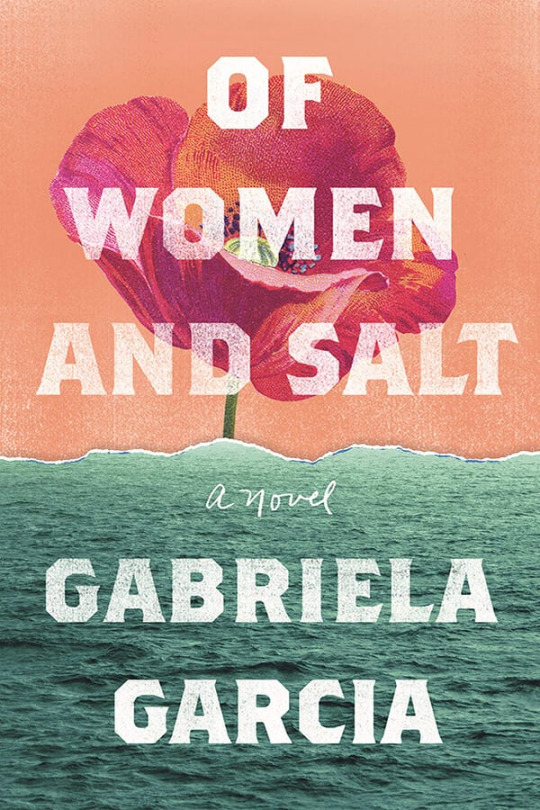
⭐:4
Gabriela Garcia's debut novel, Of Women and Salt is a beautifully written story told from multiple point of views over the course of five generations. Of Women and Salt takes us through the hardships of war, revolution, domestic violence, addiction and immigration from a fully female and mainly maternal perspective. The novel highlights the quiet strengths of women, of mothers, of enduring hardships and wishing better for y our children and the complexity of mother-daughter relationships burdened by intergenerational trauma. It is a very realistic book in that, while a work of fiction, it could be the lifestory of anyone you pass on the street. While it does not exactly have a happy ending, it does have a hopeful one that I think fitted the themes of strength and resillience excellently. My only issue with this book was a formatting one. I don't mind it being non-linear mainly due to the fact that the different years tended to be told from different perspectives. The chapters themselves were non-linear but each character's story was linear (e.g. if chapters 1, 5 and 7 were all told by the same character they were in chronological order) which made it easier to follow. However about halfway through at least one character's chapters became non-linear (i.e. chapters x, y and z were no longer chronological) and it was difficult to maintain the timeline in my head. I had to go back more than once and check dates so I could fit events correctly into the timeline in my head.
~Eli
Ace of All Trades, Pro at None😆
Buy me a coffee
#book review#of women and salt#gabriela garcia#books read in 2023#of women and salt by gabriela garcia#female protagonist#latina protagonist#cuban protagonist#cuban stories#salvadorian protagonist#salvadorian stories#immigration#intergenerational relationships#intergenerational trauma#intergenerational stories#multiple povs#hopeful ending#non linear#non-linear narrative#ko fi account#Ace of all Trades
1 note
·
View note
Text
Book Picks: Palmares
Magical realist and almost Biblical, Gayl Jones' novel Palmares is magnificent. Almeyda grows up enslaved in 1600s Brazil--until she arrives in Palmares, where everything changes. This is a story of magic, myth, and the hope of intergenerational healing.
Palmares is marvelous. Magical realist and at times even Biblical, Gayl Jones’ novel is set in a fictional Brazil at the end of the 17th century. It opens with the young first-person narrator Almeyda, observing Mexia, a mixed race woman. She serves as a model for a particular type of femininity: quiet, alluring, and outwardly obedient. This divide between inner and outer worlds—appearance versus…

View On WordPress
#17th century Brazil#Bakhtin heteroglossia#Bakhtin polyphony#bildungsroman novel#Black feminism#Black liberation#Black resistance#book review#European colonization of the Americas#Gayl Jones#historical fiction#intergenerational trauma#magical realism#Palmares#slave narrative#slavery in Brazil#Song of Anninho#traditional healers
1 note
·
View note
Text
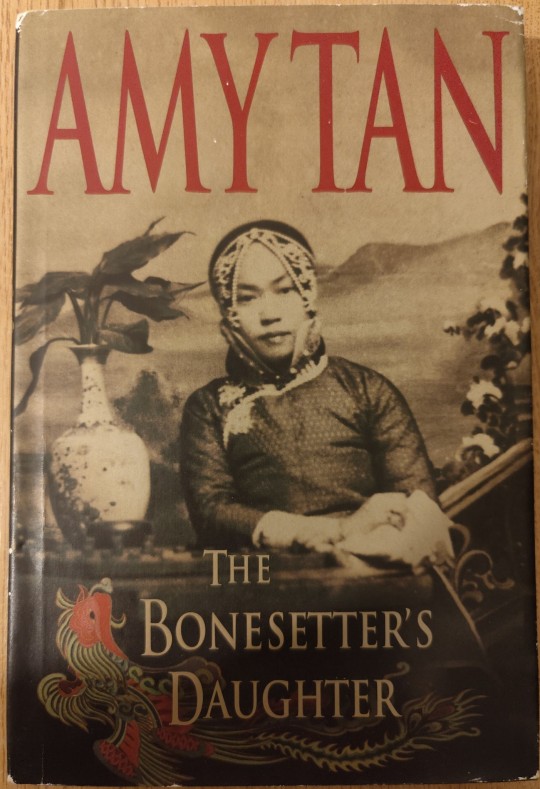
Latest reading material: The Bonesetter’s Daughter, by Amy Tan.
Recently, I had occasion to relocate several boxes, inside one of which I found the above book. I acquired this one a long while ago, and now I have finally read it. Another enjoyable narrative, exploring intergenerational relationships, interweaving the two major stories of the lives of Ruth Young, a Chinese-American woman living in San Francisco and her mother LuLing, who was born in China and later emigrated to the US. Tan reminds the reader of the vital importance of names and naming, central to signification and attesting to one’s existence. Once again, highly recommended.
#Amy Tan#The Bonesetter's Daughter#Book#Latest Reading#Reading#Literature#Novel#Narrative#Fiction#Tan#Chinese#Chinese-American#USA#Intergenerational#Name#Naming#Image#Photo#Visual#Personal
1 note
·
View note
Text

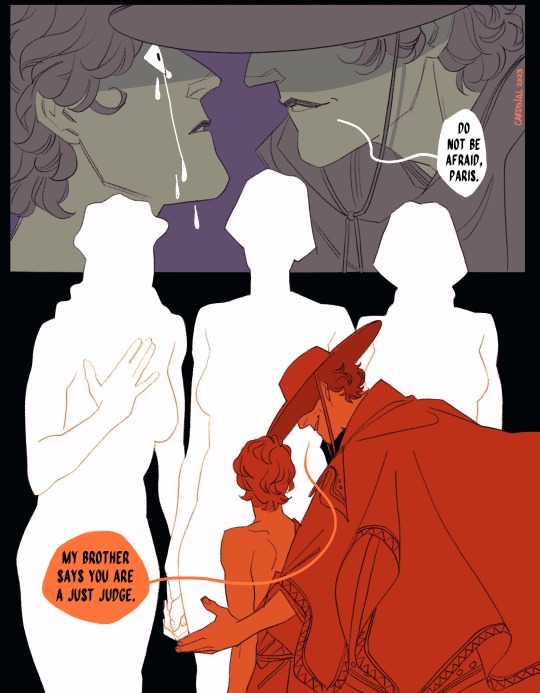
DO NOT BE AFRAID
this is combining Ovid's Heroides and the Excidium Troie because I can't stop thinking of Hermes telling him not to be afraid. what the fuck!! Ares is wearing the crown that Paris gave him.
I have. thoughts. about Paris. he's almost got this Troilos parallel in my mind, that the event that defines him in detail exists in a lost narrative that we don't have (the Cypria), but everyone else knew. the event that defines Troilos is his death (murdered, butchered by Achilles, the violence of which haunts everything after. Achilles, child killer, you can't escape that!), and the event that defines Paris is the Judgement. what's a lost text but a kind of grave!!
idk I don't think that Paris before the Judgement would recognize himself after bc when you become god touched, it rearranges your guts. you become transformed in the worst way possible! how could you recognize yourself! but I also think that all the Parises after the Judgement would recognize each other because that event is so locked into the trauma of war and the scar it leaves on the land, it's like a scar on the narrative too. it exists like this forever, over and over again, so you exist like that forever too. Troy collects grief and despairs.

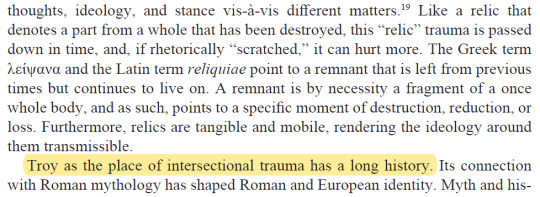
Troy as trauma: Reflections on intergenerational transmission and the locus of trauma, Andromache Karanika
and Paris is like. a miserable little god/corpse-puppet or something, like a match for the gods to throw onto gasoline.
The Excidium Troie + Ovid's Heroides:


Excidium Troie, trans. Muhammad Syarif Fadhlurrahman
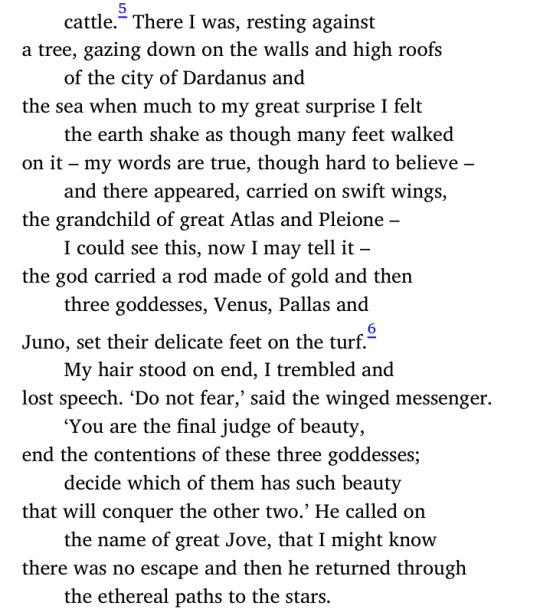
Ovid, Heroides 16 (trans. Harold Isbell)
a collection of things regarding Paris that made me go 😬 but under a cut bc this is getting. very long.

The Divine Twins in Early Greek Poetry, Corolla Torontonensis






Iliad 24 and the Judgement of Paris, C.J. Mackie



Elegy and Epic and the Recognition of Paris: Ovid "Heroides" 16, Elizabeth Forbis Mazurek
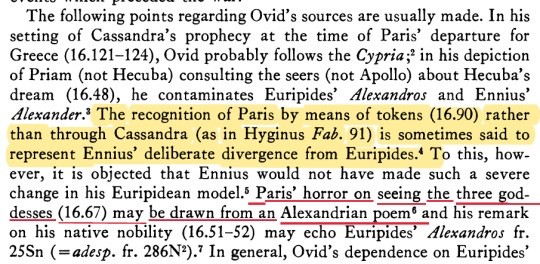
Ennian Influence in "Heroides" 16 and 17, Howard Jacobson
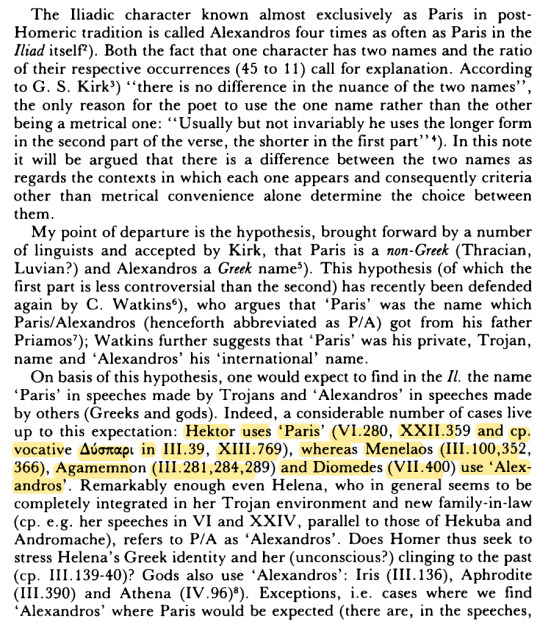
Paris/Alexandros in the "Iliad", I. J. F. de Jong
#long post#paris of troy#komiks tag#like. DISTANTLY. its#the iliad#drawing tag#listen i know it's fun to dunk on paris. but im a chronic killjoy. i know its cringe. mea culpa etc#i would love. I WOULD LOVE. to draw a comic and not have the commentary notes be longer than the comic itself#unfortunately i like to read and i cannot stop talking about things that i read. so this will not be changing.#ngl i keep hearing the last line 'my brother says you are a just judge' as 'and brutus says he is an honorable man' and that's smth for sur#god i wish this was shorter but then i remember it could've been longer bc i started drawing this while watching#some excellent korean horror but then i looked at myself in the mirror and said 'no. get your shit together.'#but that show is what sparked this. the themes. god i love shows. a round of applause for tv shows.#in a different world theres a version of me that didn't exercise self restraint and there's 30 screen caps from a horror show here too#it’s all greek to me
2K notes
·
View notes
Text
a lot of targaryen takes sound like people making up some guys to get mad at. it gets a little tiring, the way they're imagined as uniquely awful within the text. i'm not certain we were meant to interpret them as the worst of westerosi nobility, simply that, being westeros' reigning house means they are afforded special narrative spotlight and scrutiny. if we had as much specific information on the history of the kings of winter or lords of winterfell, it would look much the same in terms of frequency of despotic rulers and dynastic conflicts. in the present timeline almost every noble house is in the process of unraveling, that's a theme with the lannisters, the tullys, the greyjoys, the baratheons, and the rest. the decline of house tully can be traced directly back to hoster forcing his teenage daughter through a dangerous abortion and then trading her as a political bargaining chip. it all goes back and back, tyrion thought, to our mothers and fathers and theirs before them. <- dynastic decline and intergenerational violence is an overarching series theme. like. "targaryens were always destined to die" is not really saying anything other than you think they're all ontologically evil i guess. and yeah about the dragons and the incest. well. i think the endogamy has more to do with concentrating dragon power within the family and less with the notion of 'valyrian supremacy'? i may regret saying this since i haven't read fire & blood cover to cover, but how is the sentiment behind “the blood of the dragon” materially different than “there must always be a stark in winterfell”? i don't know! they ALL believe in the inherent superiority of their bloodlines that's just how it works under feudalism where inheritance is secured through primogeniture.
#like sure. idk. i must not be annoyed by targ rot posts. being annoyed by targ rot posts is the mind killer or whatever paul said#agonised over posting this because i'm not trying to start discourse btw. don't start discourse#asoiaf#*[🫀]#house targaryen
198 notes
·
View notes
Text
Do not run from life's initiations. Be that mature woman--and accept your journey. Do not waste your life (force) energy hanging your head in defeat or despair, comparing and contrasting, or wishing things were different for you. As a darker-pigmented woman, as a Black woman, I have always known that my incarnation came with a great set of obstacles, an initiation I graciously accepted early-on. I deeply adore every new step, every quiet difficulty, every intimacy, every new narrative, every next level mastered. This lifetime —and all of the obstacles, discomforts, hardships, trauma, heartbreak, and diagnoses that we get to unravel and move beyond —are gifts! Those who have experienced some of the greatest oppression always have the highest magic and power to remember and retrieve back. It's really good news if you accept your life experiences as initiations and don't run from them or stay stuck in your obsessions, addictions and other conditioned coping patterns. -India Ame'ye, Author
Loved Ones, you know there are levels to this game of life. The next level is when you start to realize that there is no better or worse, greater or less. You are the oppressor and the oppressed. You have to begin to see how the oppressor lives in your body. You are the lover and beloved. You have to begin to see how your future beloved lives in your body. Everything is within us all, even when it’s difficult or comfortable. Mainly what we are carrying forward are the stories and judgments we hold onto that give value metrics and assign meaning and combined, they influence our future creations in usually undesirable ways. We have to unwind, unbind, and peel back a lot of the cultural and intergenerational patterns we internalized about what it means to be who we are based on the stories of powerless we have been through sold and told. That's a more advanced teaching lesson around "neutrality" though for the real players :). -India
130 notes
·
View notes
Text
Saltburn: The Reign of British Bourgeois (Meta)
I recently had an interesting conversation with a close friend of mine who said, "I don't think Saltburn is really about class." She said she thought it was mainly about obsession, in the most individualist and interpersonal way possible. I naturally disagreed, and we argued about it for an hour. But I think the reason she didn't think it was really about class was because the film had a categorically anti-Marxist conclusion. That is, a very British conclusion. In many ways, Saltburn is a Thatcherite's wet dream. Let's discuss.
Saltburn isn’t an “Eat The Rich” narrative. It’s an “Absorb The Rich” narrative. I disagree that Saltburn is merely about an individual’s obsession with a particular guy or family. Saltburn is about the bourgeoisie’s obsession with the old English aristocracy.
Let’s establish the establishment: the modern English aristocracy whose family seats litter the shires. Saltburn aims to satirize the English Country House family drama, and then some. This is made evident when Felix informs Ollie that, whoa, the Evelyn Waugh himself based Brideshead Revisited and other works on Saltburn, on Felix’s family. The film, in my opinion, was kinda ballsy to go there and to do it so bluntly. So yeah, Saltburn wants to poke fun at the long-established English tradition of aristocratic family dramas such as Downton Abbey, Brideshead Revisited, Bridgerton, Poldark, Rebecca, etc. It’s no coincidence that the movie begins with an egregiously stereotypical sketch of Ollie struggling to fit in at Oxford, à la Charles Ryder. Felix Catton is Sebastian Flyte, and then some. And Ollie is obsessed with him, because look at him. Except… I believe Ollie’s obsession with Felix is less of an interpersonal homoerotic deranged clusterfuck than it is the bourgeois boy’s perennial fixation with the unreachable closed-door English aristocracy, the national pinnacle of inherited class and status in a nation founded on inherited class and status.
Saltburn, butler and all, is a perfect symbol of English aristocratic privilege (seconded by none other than Oxford, but the film didn’t care to explore the hierarchies present in British education and instead chose to focus on family in lieu of academia). Saltburn is grand, medieval, kitchy, isolated in the middle of whereverthefuckshire. One would think that Ollie was intending to infiltrate Saltburn to possess Felix, but I rather think he was intending to infiltrate Felix in order to possess Saltburn. To possess Saltburn is to possess the rank and place of the Catton’s in the world, to be the world. And Ollie doesn’t want to destroy the Cattons nearly as much as he wants to embody them.
I suppose Ollie’s need to absorb, to consume, to possess and to incarnate is obvious through his actions—drinking Felix’s semen in the bathtub, the period blood bit, the grave-fucking debacle. He worms his way through every aspect of the family members’ lives with the intent to become them, to suck them dry (see: “I’m a vampire”, how gothic). By the end when the Cattons are all dead, Ollie celebrates the privilege he has grasped, and in turn, the film applauds his feat rather than condemns him. Saltburn is a film that congratulates Ollie’s usurping of wealth and privilege, rooting for him from beginning to end. And the film never tries to interrogate itself and ask why Ollie is our hero. Ollie, who does not want to break the wheel as much as he wants to be in the room where it happens, even if that means destroying everyone else in his path. Ollie’s obsession, generally speaking, arises from the desire for status and rank rather than an inoccuous maniacal insanity. This is symbolized by his possession and control of Saltburn. If Saltburn were a gothic ghost story, then Ollie is our specter. And Saltburn is definitely rooting for the specter, full stop.
Britain is a nation of ranks and hierarchies, naturally averse to watering down pristine intergenerational blue blood with filthy postmodern capitalist dollars. “Stay in your place”, that is the Tory way. Even in a “modern, democratic” nation nonetheless governed by an antiquated Tory hegemony and quite opposed to both radicalism and revolution. Ollie, however, wants to be in the room where it happens in a world where only those who are born in that room ever get to enter it. It is why he faces this overwhelming yearning for Felix’s world and Saltburn’s beauty – it is, by default, off-limits to him no matter how hard he tries to reach it. In my opinion, Ollie’s fascination with Saltburn isn’t due to a homoerotic fixation on Felix. It’s due to an outsider’s bourgeois fixation on the romantic world of inherited English rank, status, and wealth. The romance of Saltburn, our need to romanticize the privileged upper class, is evident in the stunning cinematography and costuming. Farleigh is the first person in the family to notice Ollie’s insecurities and see it for what it is – he’s begging to be let in. Farleigh likewise takes the opportunity to constantly, antagonistically remind Ollie that Saltburn isn’t his world, that he will never fit in and will never be accepted as one of them: the tux will never perfectly fit. It is the tragedy of the almost-theres. So Ollie decides to just get rid of everyone in his way and prance about naked since the tux refuses to bloody fit.
It’s just so English, culturally speaking. To claw your way to the top to sit with the big boys rather than to criticize the system that bred the arduous, back-breaking, fatal climb in the first place. This is Tory meritocracy, founded on decades of policies to reduce taxes on properties such as Saltburn in Britain, to keep old peers in the Lords. Felix Catton is Sebastian Flyte is Margaret Thatcher. Thatcher who, despite brandishing her “common” background as a selling point during her political career, painstakingly perfected the Received Pronunciation of her Eton parliamentary peers and successfully died with the coveted title of Baroness added to her name. Thatcher, an Oxford scholarship kid like Ollie, who wormed her way into a title and country house and was yet forever plagued by her average, middle-class upbringing.
Ollie is obsessed with much more than a mere man. If Saltburn were a Marxist class story, truly dedicated to class critcism or subverting the English Country House drama, Ollie would have burned the whole damn place down. But Saltburn is rather a Tory class story about the insane lengths the British bouregoisie, obsessed with ascending class hierarchies and disillusioned by the lies of meritocracy, will go to possess the near-unpossessable ranks at the peak of English-textured privilege. The film is a performance in English upper-class tomfoolery and a celebration of its infiltration by the almost-theres.
And yet, the cycle perpetuates itself. Saltburn is ruled by a new lord. Nothing, really, has changed.
#saltburn#saltburn 2023#barry keoghan#jacob elordi#rosamund pike#brideshead revisited#emerald fennell#films#movies#film analysis#movie review#2023 movies#english lit#english literature#oliver quick#felix catton#aristocracy#marxism#dark academia blog#dark academia#homoerotism#obsession#felix x oliver#film recommendations
156 notes
·
View notes
Text
People who excessively hate on lan xichen and paint him as some kind of villain in a quest to simplify a complex, open-ended narrative are both boring and incorrect
#its not his fault if you subscribe to moral absolutism!!!#dont push that on him#isnt that just reinforing the lan methodology we all condem so much for punishing wangji so ruthlessly#for the same crime his brother commits?!?!#ie loving someone whos fundamental understanding of the universe syands against those principles???#the mistake of all lans!!!#tthe only problem being that xichen and jgy stand as narrative foils to the same struggles of their younger generation peers#in you know probably an effort to adress the intergenerational trauma of war and what not#so theyre doomrd from the jump!!!!#im just having dome feelings please be nice to my sons#cql#the untamed#jin guangyao#lan xichen#like yes his inaction led to tragedy!! much like lan wangji!!!!!!!#but we dont all get to start over via the magic of necromancy!#some of us have to be sacrificed to the purpose of the narrative!!!!!#sorry#im just feeling protective of my lil guy#is he free of crime?!?! no!!#but he should not be unilaterally condemned for failing in the same moral pilgramage lan wangji had to struggle with for 16+ years!!!#also for anyone wondering who lan qirens tragic love that bound him to someone fundamentally opposed to the world view he was raised under#its xichen and wangji#like its always been them#his failure is the failure 2 commit tonthat same kind of moral pilgrammage and willingness to fail inthe effort of keeping a so called peace#that worked only for the oppressive party#ok NOW im done probably
20 notes
·
View notes
Text
i don’t begrudge people interesting aus, and i get why someone might be interested in exploring a plot where azulon didn’t really order ozai to kill zuko and that whole series of events went differently from what zuko was told and what the narrative says (and the comics, contentious as they are, further cement.)
that being said: when it comes to canon, i strongly dislike the argument that it can’t really be that azulon ordered ozai to kill zuko because it’s illogical when he just berated ozai for disrespecting iroh and lu ten after lu ten’s death…
because like… yes. it’s illogical, and unfair, and absurd, especially when he’s ostensibly doing it in the name of love for iroh and respect for the family line (which is not actually what it’s about, but more on that in a minute.)
it’s not logical or reasonable. that’s the point.
abusers don’t care about logic, not as it pertains to them. abusers will often give illogical orders or make unreasonable demands and then treat everyone else as the problem when they can’t live up to them or else point out the flawed nature of them.
(we also see how it affects zuko and azula, who have both been taught this behavior both by example (and, in zuko’s case, by being on the receiving end of it. the demand he endlessly search for a deity-like figure no one’s seen in a hundred years and most people believe to be forever-dead springs to mind.) in the storm, zuko unreasonably demands that they continue their search for the avatar and that the safety of the crew doesn’t matter, but the whole episode is about deconstructing that mindset and showing how he got there, and in the end, he chooses to do the right thing, saving a crew member and deciding to get the ship to safety instead of following aang. azula, by contrast, orders her own soldiers to pull in the ship despite the tides, and only doubles down (and violently threatens) when questioned, showing a lack of respect for the laws of nature itself. this is her first proper episode, and she never truly grows out of this mindset. see also: cherries accidentally left un-pitted being treated as evidence of high treason.)
there is a story about intergenerational trauma and the cycles of abuse being told here. azulon is contradicting himself. he’s a hypocrite! abusers often are! he doesn’t care, though, because why should he, when he defines what’s right and wrong—just as ozai does and as he teaches azula to—not through any consistent moral conviction or code but through what he decides to do and therefore what he perceives as his right to do? in his mind, the only ‘right’ is his final word, and the highest ‘wrong’ is going against it.
and while he couches his outrage at ozai’s attempt to usurp iroh’s place in the line of heirs in language that suggests it’s about loyalty to iroh and respect for the family line—it’s not really. it’s outrage that ozai, the son he clearly doesn’t care for, dares to question iroh’s place, and therefore azulon’s judgment and authority, as the rightful heir, the respected general, the golden child.
but it’s not even about genuinely respecting iroh or what he would want, whatever azulon may tell himself. iroh, who, even at the height of his imperialist indoctrination and military power, i very earnestly believe would have been horrified to learn azulon ordered zuko’s murder and that it was done, ostensibly, on “his behalf”—even though he never and never would have asked for it. and, especially coming just after lu ten’s death, i think he would hate for his grief at the loss of his son to be twisted and used in this horrendous way.
anyway. azulon’s order doesn’t match up with what he say he values and is trying to defend, but that’s because those things are not what he’s truly so angry about. it’s about control. he has it, and he will make any illogical, cruel, sadistic order he wants when someone challenges it, because he can.
which, by the way, is ozai’s whole MO as well.
#abuse //#ask to tag //#long post //#azulon#zuko#ozai#idk why i’m so !!! abt this lmao#it’s not that i can’t understand why people like the aus i genuinely can#but the argument that azulon could not ~possibly~ have ordered this bc he clearly values and respect’s family falls sooo flat to me#because. i just really think that misses the point. by a mile or two.#forgot to tag#azula#zuko alone
68 notes
·
View notes
Text
Fermat's Cuisine is an Intergenerational Trauma Narrative
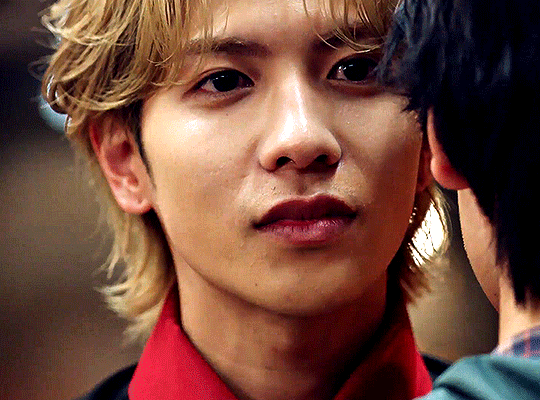
When @troubled-mind pitched Fermat's Cuisine to me, I knew I'd be watching it soon, and I went in expecting it to be a kind of classic high stakes restaurant drama with a twist, about a math prodigy slash newbie chef learning the ropes from an intense mentor, figuring out how to translate his special skill and function as part of a well-oiled cooperative team, and taking the restaurant world by storm.
And it was that, partly (until it wasn't). But the core narrative in this drama is not really about food or math or a classic success through adversity arc at all. Instead, it's about the intergenerational trauma passed down through a lineage of abusive haute cuisine chefs, the deep psychological damage they do to each other, and the way our protagonist and his mentor ultimately come together to break the cycle. Obviously, because I am me, this revelation was a goddamn delight and a very welcome surprise. I'm going to dig in on how this theme defined the narrative, so spoilers ahead, folks!

There are many dramas that touch on how extremely high stress restaurant environments are as workplaces and how rampant abuse can get in kitchens. It's quite a common theme explored in most stories about professional chefs. But this drama didn't simply nod to these elements or include them as an added tension point, it doubled down on them and built in an additional layer by centering its story on a lineage of chefs (Shibuya->Kai->Gaku) who explicitly took their protégés into their homes as parent figures.
Shibuya found Kai when he was an unhoused and orphaned child and raised him, bringing him home to live with him and providing him with shelter and material support and a chosen career path. And then he proceeded to mentor him in such an emotionally abusive way that it's kind of a miracle Kai still had any humanity left in him by the time he found Gaku and began to repeat the cycle. Shibuya taught Kai that his entire worth as a human being was dependent on his ability to cook, not just well, but at a level that few in the world can ever hope to achieve. He raised him to strive to "surpass God" with his food and to feel worthless if he couldn't continually top himself. And he raised him to think there was only glory in this achievement if he did it alone, without relying on bonds with other people to support him.
This is deeply fucked up stuff, and it predictably fucked Kai up, especially once he developed an illness that impacted his ability to taste, and therefore, his ability to cook. He found Gaku and repeated the patterns he learned in his childhood to try to quickly mold him into the same kind of chef he feared he could no longer be, and then abandoned him alone with all the same impossible expectations he was raised with, turning him quickly from a sweet kid with a genuine love for learning how to master his job into an abusive tyrant in his own right. Gaku was just a kid, however, no matter how talented, and he couldn't sustain these responsibilities Kai put on him, so it all came crashing down rather quickly, pushing Gaku to go in search of his wayward mentor and pulling them back together in their shared failure. And ultimately, they decided that their only option left was to try working together to achieve their dream in defiance of Shibuya's teachings.

Which led to one of the best scenes in the drama and the one that clinched this story for me, when after cooking a meal for him together, Gaku directly confronted Shibuya on Kai's behalf and demanded that he acknowledge Kai in the way he deserves, giving Kai the catharsis he has been desperately needing for years. Did Shibuya suddenly change his perspective and apologize for his wrongs? Of course not. But the drama showed us how wrong he was by bringing Gaku and Kai together, with the support of their colleagues, to defy his teachings and make beautiful food together their way. And Shibuya was forced to relinquish his hold on Kai, finally giving him the approval he was so desperate for and releasing him from his expectations. Kai broke the cycle with Gaku's help, and thus began to heal. And in helping Kai, Gaku saved himself, as well.
Now, can I claim the execution of this arc in the show was perfect? No, I definitely cannot. This drama is extremely watchable, has a great cast, and was built around a fantastic main idea, but it also has some pretty significant flaws in how it all came together. There were serious pacing problems in this story--some character information was withheld for too long, some narrative beats were rushed to the point that they barely landed, and some character turns were simply not well grounded enough to feel believable. I have a whole reef of notes about how to rearrange the story elements to make it all work on a higher level. But the core of this story is solid and the ending rings true, despite some bumps on the journey to get there.
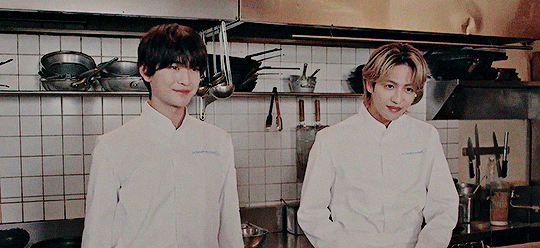
I highly recommend y'all check this drama out for something a little different and very refreshing. And hey, it's not often that Japan puts their content on major western streaming services and gives us all easy access to enjoy their work, so we should encourage the practice.
91 notes
·
View notes
Text
It's insane to me that people are arguing that EEAAO is just like... not at all intellectually engaging. And I really think it's kind of just really bizarre to argue that just because something is positive, it must be... stupid? Or at least lacking in intellectual stimulation.
Like... EEAAO is a deeply philosophical film, even if people aren't waxing poetic about it in the dialogue. Like, we have the basics of the LITERAL philosophies its invoking like yin and yang (and more from philosophies and religions I'm not informed enough on to talk about any length, I'll admit that here), nihilism, and, yes, the existence of a multiverse and what it means to have multiple "selves" which is a metaphysical topic... you're just used to it being diluted by comic book franchises whcih want to have an excuse to reuse the same characters five times and avoid narrative consequence.
And even beyond the like direct philosophical narrative... this film is dealing with extremely deep and... traumatic topics?
Intergenerational trauma and indeed the cyclical nature of suffering isn't a shallow topic just because it's end thesis is that healing is possible and connections can be reformed. It's a film obviously aware of race but also gender, class, and sexuality and doesn't just use those as like "Look, we're diverse, give us points!" fodder. It's dealing with adult issues (including fucking TAXES) with room to be silly.
If you're blinded by hot dog fingers and assuming that means this film is intellectually void, I think... you might be the vapid one. Like, I'm not going to argue this film is genius tier stuff but it is ABSOLUTELY intellectually engaging, narratively and philosphically rich, and has compelling, human stories that exist beyond the surface level. If you are getting lost in the silly veneer, that's absolutely an indictment of YOUR character, not the film itself.
This has the same energy as people calling Nope an empty film. Might not be my place to call it out but it kinda just feels like a knee jerk racist reaction and in inability to parse narratives that aren't exploring "relatable" (ie white) stories. Because like... EEAAO is begging you to engage with its narrative on multiple levels the entire way through, if you aren't doing that... on some level you are just CHOOSING to not do that
#honestly a lot of 'gritty' and 'real' story telling#is a LOT less intelectually stimulating than positive media#because its just meant to confirm your own biases#and angst#lol
514 notes
·
View notes